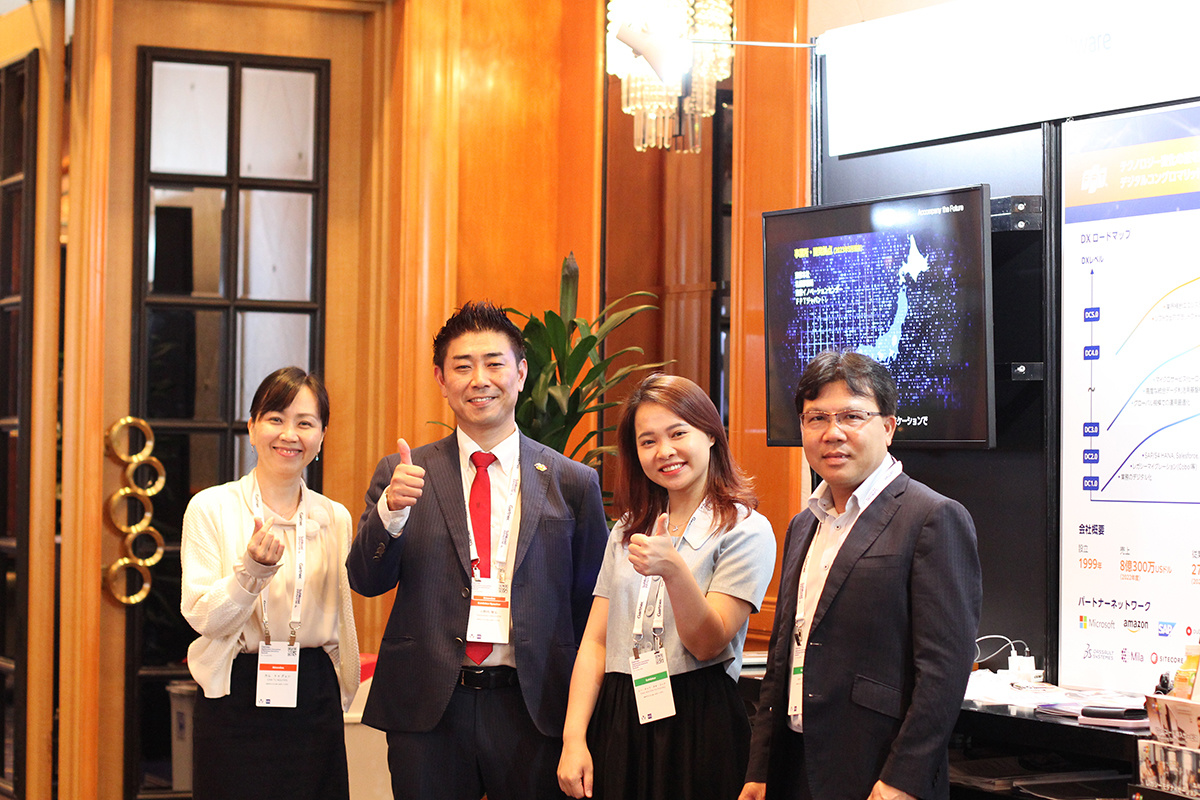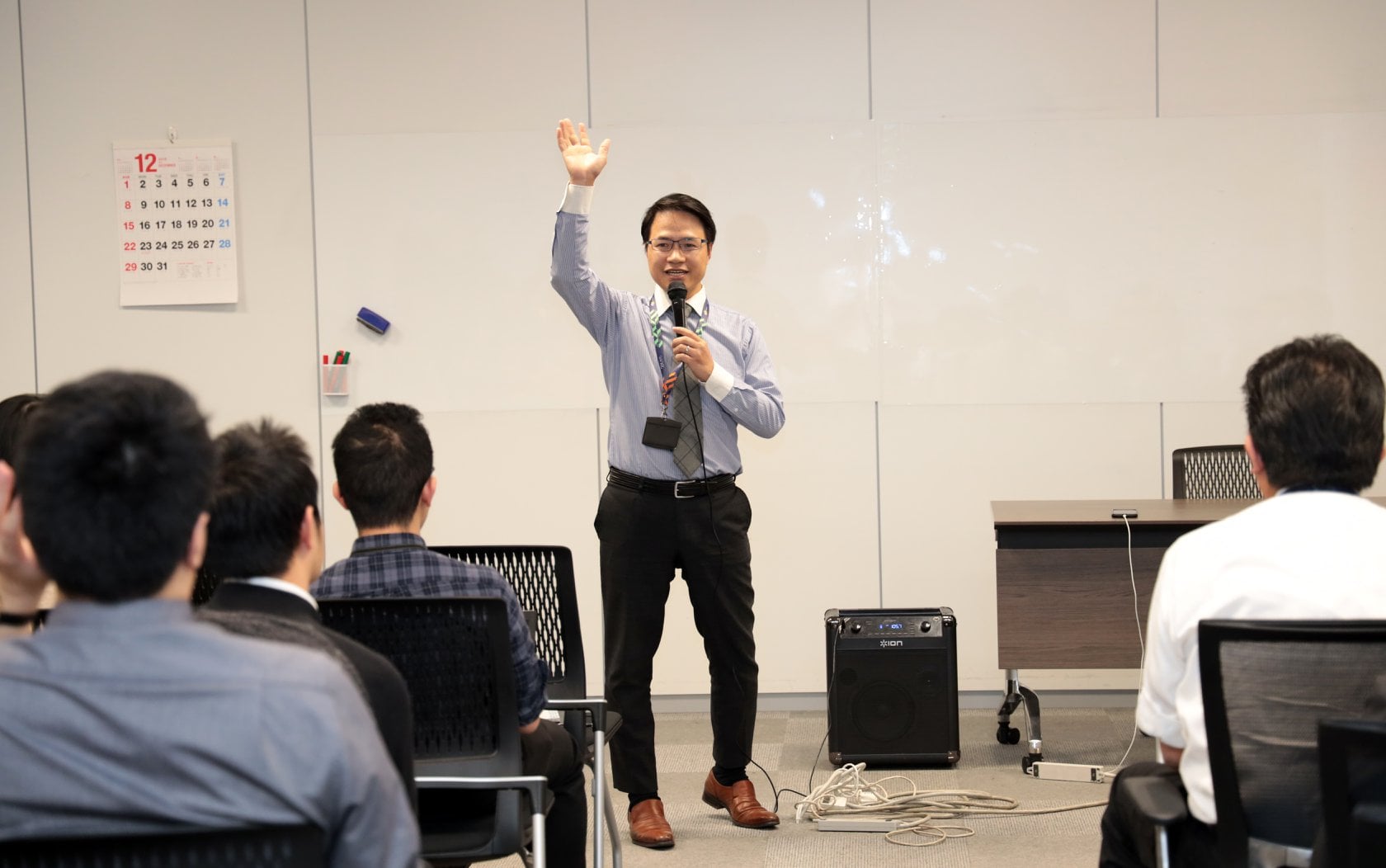As global technology supply chains are being restructured, Southeast Asia, especially Vietnam, is rising not just as a manufacturing base but as a contributor to higher-value segments. FPT Consulting Japan (FCJ) is a case in point. After FPT became a strategic shareholder of Japanese consultancy LTS in October 2022, FCJ shifted from software delivery to consulting services, directly shaping digital strategies and competing with giants such as IBM, Accenture, and NTT in one of the world’s most demanding markets - Japan.
Leading this transformation is Nguyễn Hữu Long, CEO of FCJ, who manages hundreds of engineers, consultants, and technology specialists in Japan. For him, proving that a Vietnamese company can break away from the outsourcing stereotype is not just a corporate achievement, it is proof that a new generation of Vietnamese engineers can combine technical skills with strategic thinking, and above all, the ambition to dream big.
In our conversation with him, we explored the journey behind FCJ’s rise, from what it means to “do consulting in Japan” to the persistence, hunger, and ambition that fuel it.
To overcome the stereotype that Vietnamese firms are only outsourcing providers, and to build a consulting company in Japan’s highly demanding market, how long did it take, what was essential, and what did you have to sacrifice to earn trust?

To transform from an outsourcing provider into a strategic consulting partner, the most important thing is to have the right mix of timing, opportunity, and people.
- Timing: The global market is shifting rapidly. “Outsourcing” and “strategic consulting” may be different points in the value chain, but today, they hold equal importance. You can see this in the way major firms such as Accenture, IBM, Deloitte, McKinsey, NTT Data, NRI are all expanding their service portfolios. Japanese clients, under pressure to undergo digital transformation (DX) and AI transformation (AIX) in very short timeframes, no longer look only to big brand names. Instead, they seek “one-stop” partners who can deliver end-to-end services. This creates opportunities for smaller, but more integrated, players to rise.
- Opportunity: Japan is facing a rapidly aging population, losing nearly one million people each year. This makes the country increasingly dependent on young talent from developing nations. Vietnam, with its youthful demographics, is a natural fit.
- People: Vietnamese professionals have a defining trait; they are always hungry. The 70s and 80s generations grew up in hardship, so resilience is in their DNA. The 90s and Gen Z grew up during Vietnam’s economic boom, exposed to countless success stories, fueling their desire to go even further. At FPT, whenever we face new challenges, we often ask ourselves: “Are we still hungry enough to dream bigger and take the next step?” That spirit has driven many young Vietnamese to venture abroad, often sacrificing personal comfort to pave the way for their teams.
As for sacrifices - yes, there are plenty. Success can lull people into complacency, choosing the easy path. But that’s the trap of “small success”. To truly break through, you need to think differently, embrace challenges, even appear “foolish”, as Steve Jobs said, daring to test yourself against higher standards. For FPT, expanding into consulting was exactly that kind of bold, even “foolish”, move, but it was also the only way to compete head-on with global giants.
Equipping ourselves with new knowledge, broadening perspectives, daring to take risks, and embracing sacrifice is what it takes to earn trust in a demanding market like Japan.
Vietnamese professionals are often praised for being hardworking, smart, and patient. But Japan values discipline and structure. What challenges have you seen your team face when adapting to this culture, and what helped FCJ overcome them?
Challenges exist, of course, but in reality, the cultural barrier for Vietnamese adapting to Japan is lower than expected.
At FCJ, nearly 20% of our 550 employees are young Vietnamese, most joining right after graduation or after a few years in other companies. Thanks to structured training and direct collaboration with experienced Japanese colleagues, they quickly master not only consulting skills but also the soft skills needed to work effectively with Japanese clients. In fact, many have risen to leadership roles, including Manager or even Managing Director, proving that Vietnamese professionals are not only adaptable, but fully capable of thriving.
Fluency in Japanese and working directly in Japan also make the transition smoother. That said, compared to native Japanese peers who’ve been immersed in the culture from birth, young Vietnamese still need more time, determination, and creativity to catch up.
The key factor, beyond personal effort, is the environment. At FCJ, young employees learn not only from Japanese colleagues but also from fellow Vietnamese and from mentors further along in their careers. This creates a culture where they can challenge themselves, grow professionally, and advance together. That spirit of “hungry and foolish” has been critical to helping them not just adapt, but excel.
FCJ is not only a consulting firm for Japanese clients, but also a hub for ambitious Vietnamese talent. How do you balance FPT’s identity - daring, flexible, entrepreneurial - with the discipline and teamwork required in Japan?
What keeps FPT Consulting Japan aligned with FPT’s identity are our three core values: Respect - Innovation - Teamwork. These are not only for Vietnamese employees, but apply across the board, including to our Japanese staff.
- Respect means creating an environment where everyone, regardless of nationality or position, can speak openly and directly.
- Innovation is about the hunger to learn, to embrace new ideas, and stay ahead of emerging technologies.
- Teamwork ensures that everyone works toward shared goals, striving not just for impact in Japan but across Asia.
This shared sense of purpose binds ambitious young Vietnamese talent with seasoned Japanese professionals. It’s not just about collaboration; it’s about building something new together, shaping both FCJ’s future and the presence of Vietnamese companies in one of the world’s toughest markets.
When a Vietnamese company can compete with Accenture or IBM in Japan, it changes global perceptions of Vietnamese technology. Personally, is there anything you wish you had done earlier or something you’re still aspiring to achieve?
If I have any regret, it’s not about “starting earlier”, but about “doing better”. Building FCJ has involved a lot of trial and error, and of course, some failures. But that’s exactly why I value what we’ve achieved as a team.
From my own experience, I believe honest sharing is essential, so that others walking this path can continue without losing momentum. Preserving that spirit is part of FPT’s DNA: flexible, ambitious, but also courageous enough to dream big.
What I still aspire to is seeing more Vietnamese companies competing head-to-head with global players in Japan, just as FPT is doing. Expanding our value chain, developing consulting capabilities, and seizing the advantages of global market shifts and Japan’s demographic realities. That’s the way forward.
As a Vietnamese living in Japan, I want to see our companies not only succeed commercially, but also contribute meaningfully to society, gaining recognition and climbing new heights, whether in scale, or through breakthrough innovations in specialized industries. That’s the dream I carry with me.

To build a new generation not just strong in technical skills but also capable in strategic consulting, what initiatives are supporting young Vietnamese who want to grow their careers in Japan? And what advice would you give them?
The most meaningful efforts are not far away. They lie in creating robust training environments both in Vietnam and Japan, paired with workplaces that consistently strive for new value.
In Japan, FPT is expanding not only in scale but also in cutting-edge domains such as electric vehicles, strategic consulting, and artificial intelligence (AI). Most recently, we’ve entered infrastructure services for AI and platforms for generative AI, foundational fields for the global technology future.
I believe many Vietnamese already possess the two most crucial traits to go far: hungry and foolish. Hungry - to stay driven, never complacent. Foolish - to dream boldly and step outside the comfort zone.
As long as we preserve that spirit, keep learning, and persevere, progress will inevitably come: in skills, in maturity, in our place on the global technology map. And when that happens, catching up with, or even surpassing, major companies and advanced nations won’t be far-fetched at all.
If you want to hear firsthand from the pioneers who established large-scale IT consulting in Japan’s challenging market, don’t miss the Made By Vietnam: When Vietnamese Break Through in the Wave of Innovation dialogue, featuring Nguyen Huu Long, CEO of FPT Consulting Japan. He will share how the company is driving Vietnam’s transformation into an innovation powerhouse through comprehensive AI services and world-class tech talent.
Register here for the Vietcetera Open - Tokyo, Japan 2025.
Special thanks to our sponsors & partners for accompanying us in this event:
- Title Sponsor: FPT Japan
- Program Sponsor: Reazon Holdings & Money Forward
- Engagement Partner: Vilasia
- Travel Partner: Vietjet Air
- Strategic Partner: Solara & Co
- Communications PartnerPartner:
VANJ - Vietnamese Academic Network in Japan
VYSA (Vietnamese Youth and Student Association in Japan)
